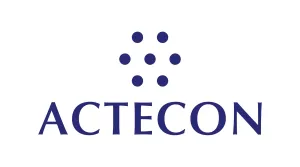The Turkish Competition Authority ("TCA") has published its short decision concerning the first investigation ever conducted in the electricity sector and has imposed a total fine of TRY 38 million on Akdeniz Elektrik Dağıtım A.Ş. ("AKEDAS, the electricity distribution company in the Mediterranean region1) and CK Akdeniz Elektrik Perakende Satış A.Ş. ("AKEPSAS", the incumbent retail electricity sales company which is under the same control structure as the distribution company) for abuse of dominance in the following relevant product markets:
- the "electricity distribution services" market in which AKEDAS is active, and
- the markets for retail electricity sales to (i) "non-eligible customers", (ii) "industrial customers connected to the integrated system at the distribution level", (iii) "commercial customers" and (iv) "residential customers" in which AKEPSAS operates.
The relevant geographic market for all the foregoing product markets has been defined as the "Mediterranean electricity distribution area"2. This matter is important for the case at hand since the TCA seems to have abandoned its previous market definition approach in which the relevant geographic market for the retail sales of electricity to commercial and industrial large-scale customers was defined widely as "Turkey".
The TCA had previously initiated several preliminary inquiries in the electricity sector but had each time refrained from conducting a full-fledged investigation although it had found that the undertakings that provide both electricity distribution and retail electricity sales services (under separate legal entities within the same control structure) were engaging in certain behaviors that prevent the market from becoming more competitive. The TCA's decisions not to investigate the said behaviors could be mainly explained by the fact that the Energy Market Regulatory Authority's ("EMRA") was already working on certain sector specific regulations to prevent such conducts.
Rather than conducting investigations, the TCA had adopted an interesting approach and had sent to the Electricity Distribution Services Association an extensive list of behaviors that would be deemed as abuse of dominance if performed by electricity distribution companies and incumbent retail electricity sales companies (the "EDSA Notice"). The EDSA Notice clearly sets forth that distribution companies and incumbent retail electricity sales companies are not exempt from competition law merely because they are active on a regulated market and that the Council of State allows the imposition of separate fines by the TCA and the sector specific regulator for the same exact behavior.
Although the reasoned decision has not been published yet, some of the TCA's allegations have been made public during the oral hearing which was held at the premises of the TCA on 06.02.2018. Those allegations mostly concern behaviors that were previously categorized as abuse of dominance in the EDSA Notice and may now be categorized as follows:
- cooperation between AKEDAS and AKEPSAS to provide an undue advantage to the latter vis-à-vis other retail electricity sales companies; and
- unilateral behaviors of AKEPSAS that hinder eligible customers' ability to choose other retail electricity sales companies.
Even though the details of these allegations and the behaviors that were deemed as abuse of a dominant position will only be disclosed in the reasoned decision, it is important to note that most of the allegations concern behaviors that may also violate the EMRA's sector specific regulations. For example, one allegation was that the cooperation between AKEDAS and AKEPSAS were against EMRA's "unbundling principles" and thus constituted a violation of the Competition Law. If this allegation (as well as other similar allegations) was indeed regarded as a violation, it is highly probable that the reasoned decision may blur the lines between sector specific regulations and competition law in the Turkish electricity sector. This had been a significant problem in the telecommunications sector and many undertakings active in regulated sectors rightly complained that this legal uncertainty is detrimental for the efficient functioning of business. We should finally note that up until now, the Council of State only exacerbated this problem and made it even more difficult to distinguish between violations of ex-ante regulations and the Competition Law.
Footnotes
1 The "distribution regions" are determined by the state and are privatized through tender procedures (Turkey has currently 21 of such regions). Each successful tenderer company operates as a legal monopoly in the concerned region.
2 This region comprises the provinces of Antalya, Burdur and Isparta.
The content of this article is intended to provide a general guide to the subject matter. Specialist advice should be sought about your specific circumstances.



